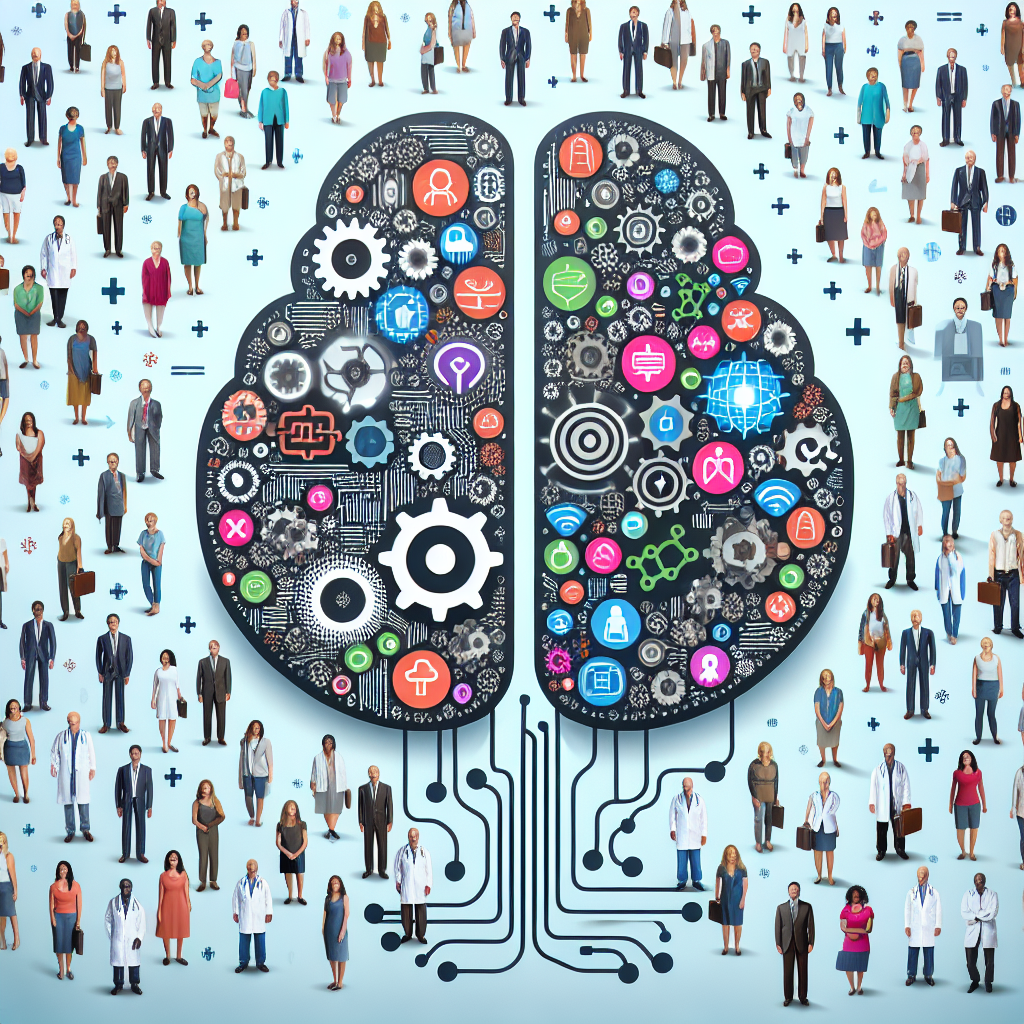In recent years, there has been a growing emphasis on population health management as a key strategy for improving the overall health of a community or population. This approach involves using data and analytics to identify health risks and trends within a population, and then implementing targeted interventions to improve health outcomes. One of the key technologies that has the potential to revolutionize population health management is artificial intelligence (AI).
AI refers to the simulation of human intelligence processes by machines, particularly computer systems. AI algorithms are capable of analyzing vast amounts of data at speeds far exceeding human capabilities, making them ideal for identifying patterns and trends within large datasets. By leveraging AI integration, healthcare organizations can gain valuable insights into population health trends, identify high-risk individuals, and tailor interventions to improve health outcomes.
There are several ways in which AI can be leveraged for population health management:
1. Predictive Analytics: AI algorithms can be used to predict future health outcomes based on historical data. By analyzing factors such as demographics, socio-economic status, and health behaviors, AI can identify individuals at high risk for certain health conditions. This allows healthcare organizations to proactively intervene and prevent the onset of diseases before they become costly and debilitating.
2. Risk Stratification: AI algorithms can be used to stratify populations into different risk categories based on their likelihood of developing certain health conditions. This allows healthcare organizations to target interventions towards high-risk individuals, such as personalized care plans or outreach programs.
3. Personalized Medicine: AI can be used to analyze individual patient data, such as genetic information, medical history, and lifestyle factors, to create personalized treatment plans. By tailoring interventions to the specific needs of each individual, healthcare organizations can improve patient outcomes and reduce healthcare costs.
4. Population Health Dashboards: AI can be used to create interactive dashboards that provide real-time insights into population health trends. These dashboards can help healthcare organizations track key performance indicators, monitor the effectiveness of interventions, and identify areas for improvement.
5. Remote Monitoring: AI-powered technologies, such as wearables and mobile apps, can be used to remotely monitor patients’ health status and provide real-time feedback. This allows healthcare providers to track patients’ progress, intervene early in case of complications, and empower patients to take control of their own health.
6. Natural Language Processing: AI algorithms can be used to analyze unstructured data, such as medical records or patient surveys, using natural language processing techniques. This allows healthcare organizations to extract valuable insights from text data, such as patient feedback or clinical notes, and incorporate them into population health management strategies.
While the potential benefits of AI integration for population health management are significant, there are also challenges and considerations that healthcare organizations must address. These include:
1. Data Privacy and Security: AI algorithms require access to large amounts of data to function effectively. Healthcare organizations must ensure that patient data is securely stored and protected from unauthorized access to comply with regulations such as HIPAA.
2. Algorithm Bias: AI algorithms are only as good as the data they are trained on. Healthcare organizations must be vigilant in ensuring that AI algorithms are not biased towards certain populations or health conditions, which could lead to inequities in care.
3. Integration with Existing Systems: Healthcare organizations must ensure that AI technologies are seamlessly integrated with existing electronic health record systems and other healthcare IT infrastructure. This requires careful planning and coordination to avoid disruptions in clinical workflows.
4. Staff Training and Education: Healthcare providers and staff must be trained on how to effectively use AI technologies in population health management. This includes understanding how to interpret AI-generated insights, integrate them into clinical decision-making, and communicate them to patients.
5. Ethical Considerations: AI algorithms raise ethical questions around issues such as patient consent, transparency, and accountability. Healthcare organizations must establish clear guidelines and policies to ensure that AI technologies are used ethically and responsibly.
In conclusion, leveraging AI integration for population health management has the potential to revolutionize the way healthcare organizations identify health risks, target interventions, and improve health outcomes. By harnessing the power of AI algorithms, healthcare organizations can gain valuable insights into population health trends, personalize interventions, and empower individuals to take control of their own health. While there are challenges and considerations that must be addressed, the benefits of AI integration for population health management are significant and hold promise for improving the health of communities and populations.
FAQs:
Q: How does AI integration improve population health management?
A: AI integration improves population health management by analyzing large datasets to identify health risks, stratify populations into risk categories, personalize interventions, and monitor health outcomes in real-time.
Q: What are some examples of AI applications in population health management?
A: Examples of AI applications in population health management include predictive analytics, risk stratification, personalized medicine, population health dashboards, remote monitoring, and natural language processing.
Q: What are some challenges of AI integration for population health management?
A: Challenges of AI integration for population health management include data privacy and security, algorithm bias, integration with existing systems, staff training and education, and ethical considerations.
Q: How can healthcare organizations address ethical considerations related to AI integration?
A: Healthcare organizations can address ethical considerations related to AI integration by establishing clear guidelines and policies around issues such as patient consent, transparency, and accountability. Training staff on ethical AI use and fostering a culture of responsible AI deployment can also help mitigate ethical risks.

